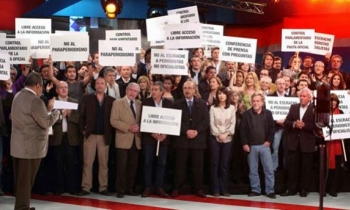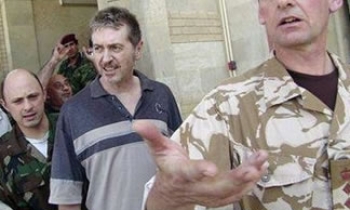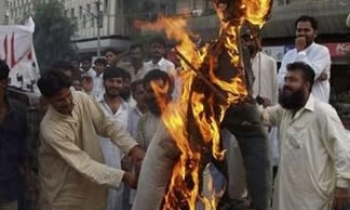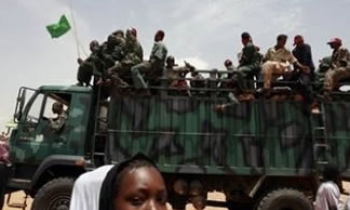The cartoon drawings of the Prophet Muhammad published by various European paper recently are highly offensive, provocative and incendiary. Muslim indignation is understandable.
Editorial cartoonists are often deliberately inflammatory to make a point but they find out pretty quickly if they've crossed the line - their editors are deluged with angry letters.
In the case of at least one of the controversial drawings, republished by France Soir and several other European papers this week, the depiction was clearly over the top.
The Prophet Muhammad was shown wearing a turban in the shape of a bomb. The cartoon was presumably intended as a comment on extremists who sanction murder in the name of religion.
Instead, it suggested that the entire Islamic faith is based on a creed of violence that promotes terrorism. In hindsight, it was an appalling lack of judgment.
But the fiery reaction from radical Muslims is even more disturbing. There have been death threats, street demonstrations, an attempted bombing of a French cultural centre in Gaza and the burning of Danish flags. (A Danish paper first published the cartoons last fall.)
In the Palestinian territories - a would-be democracy - extremists stormed into hotels looking for foreigners to kidnap and briefly took a German citizen hostage.
One Palestinian Muslim cleric declared the cartoonists should be decapitated. (Haven't these people ever thought of writing a letter to the editor or cancelling the paper?)
As an exasperated Muslim Canadian Congress spokesman pointed out Thursday, Muslim extremists are simply stoking the fires of anti-Muslim bigotry.
"The protests in the Middle East have proven that the cartoonist was right," said Tarek Fatah.
"It's falling straight into that trap of being depicted as a violent people and proving the point that, yes, we are," he said.
It is profoundly ironic, of course, that the Muslim world is outraged over the cartoons (any depiction of the Prophet is banned by Islam) when Muslim newspapers in the Middle East routinely print vile anti-Semitic drawings.
Jews are depicted as Nazis, blood-drinking butchers and satanic-looking figures with hooked noses, horns and tails.
But you don't see Jews rampaging through the streets to try to kidnap people, threatening execution or bombing buildings because of anti-Semitic caricatures.
Just as Islam has traditionally banned depictions of the Prophet, religious Jews do not spell out the word "God." Instead, they write "G-d." But Jews don't insist that newspapers follow suit.
Nor do Christians pledge violence when their sensibilities are offended by what they view as anti-Christian representations in popular culture.
When the Brooklyn Museum of Art exhibited a painting of the Virgin Mary decorated with elephant dung in 1999, self-righteous Christians didn't burn the building down.
NBC recently cancelled the TV series The Book of Daniel," which centred around a drug-addicted Episcopalian priest with an equally dysfunctional family.
Did the American Family Association, which pushed for the cancellation, threaten to kill the head of NBC? Of course not. It encouraged hundreds of thousands of Americans to complain to the network.
Unfortunately, much of the Muslim world still has no concept of freedom of the press and the separation of mosque and state. In the West, making fun of God is not a crime. Besides, I suspect He can take it.
France Soir eloquently defended its decision to run the cartoons. "Imagine a society that added up all the prohibitions of different religions," it wrote. "What would remain of the freedom to think, to speak and even to come and go?"
I pray the future of Islam lies with moderate Muslims, including the brave voices in the Middle East, not totalitarian tyrants.









